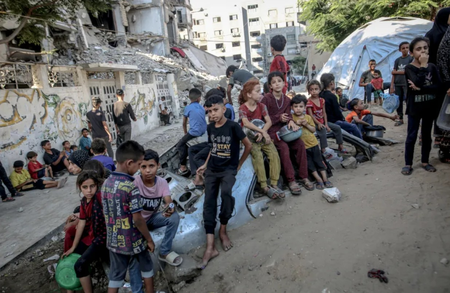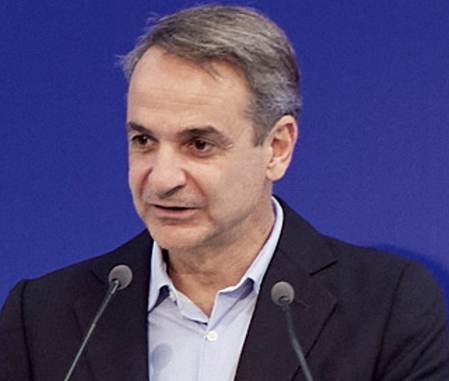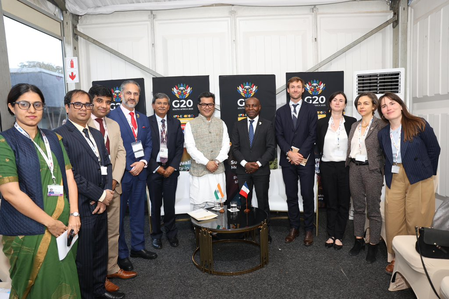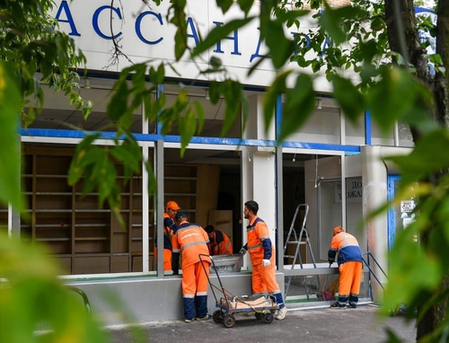
United Nations, July 24 (IANS) Access to supplies for distribution to hungry Gazans and security risks for aid workers are putting relief operations under severe strain, UN humanitarians said.
Relief workers face significant security risks. Supply crossings remain unreliable and critical supplies are routinely delayed or blocked. The amount of aid that has been entering Gaza is a trickle compared to the immense needs, said the UN Office for the Coordination of Humanitarian Affairs (OCHA) on Wednesday.
“Israel must enable safe and unimpeded aid delivery, allow the entry of critical equipment and fuel, open all crossings, and restore movement along key supply routes,” OCHA added.
“Humanitarian staff must be able to operate safely, people must be allowed to move freely, and supplies, including from the private sector, must reach all parts of Gaza.”
The office said if the conditions are met, the United Nations will urgently prioritise providing food, water, shelter, medical care and protection to the civilians of Gaza who have faced unimaginable hardships for far too long, Xinhua news agency reported.
The world body stands ready to seize the opportunity of a ceasefire to significantly scale up humanitarian operations across Gaza, as it did during previous pauses in hostilities, the office added.
OCHA warned that the hunger crisis in Gaza has never been so dire, with aid organisations reporting that as mass starvation spreads across the strip, aid workers and those they serve are wasting away.
The office said its partners report aid workers are fainting from hunger and exhaustion.
Despite catastrophic conditions, aid workers continue to deliver life-saving assistance, wherever and whenever possible.
However, the office said that to sustain operations, including nutrition programs, the Israeli authorities must facilitate the delivery of much more aid into and across all areas of the Gaza Strip without delay.
The humanitarians said that hospitals in Gaza are overwhelmed and cannot cope with the influx of patients, including those injured by hostilities, due to a lack of supplies and fuel.
OCHA said that local health authorities reported that in the past few days, several of their health facilities were shut down due to lack of fuel.
More hospitals, including Al Shifa, are at risk of shutting down within the next few days.
Humanitarian partners reported that people with disabilities have no food, no assistive devices and no health care.
Measures must be taken to protect civilians, including the tens of thousands of people who are older or are living with disabilities.
UN humanitarians said the Israeli authorities are the sole decision-makers on who, how and what enters the strip, adding that logistical challenges are immense.
To collect supplies that have reached any of the fenced-off and heavily guarded Israeli crossings around Gaza, drivers need multiple access approvals, and a pause in bombing for the iron gates to open, OCHA said.
UN Under-Secretary-General for Humanitarian Affairs Tom Fletcher told the Security Council last week that movement requires navigating an obstacle course of coordination with Israeli forces, through active hostilities, travelling on damaged roads, and often being forced to wait at holding points or pass through areas controlled by criminal gangs.
“All too often, civilians approaching UN trucks are shot at,” OCHA said.
“Collecting supplies safely requires reliable assurances that troops would not engage or be present along convoy routes.”
Israeli UN ambassador Danny Danon, speaking at the Security Council, announced restrictive measures against OCHA staff.
Israel will no longer grant automatic visas to OCHA’s international staff.
Visas will now be limited to one-month terms, Danon said.
Stephane Dujarric, Chief Spokesman for UN Secretary-General Antonio Guterres, said that any punitive measures will only add to the obstacles preventing humanitarians from reaching people facing hunger, displacement and deprivation.
–IANS
int/khz




